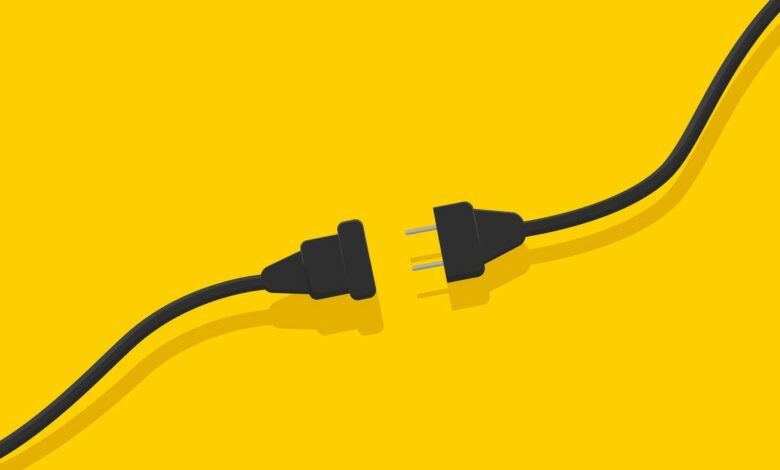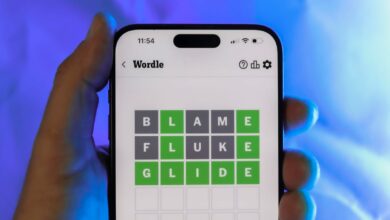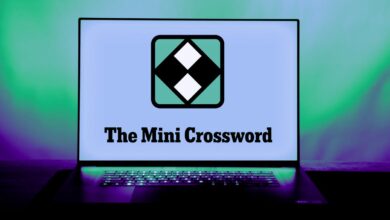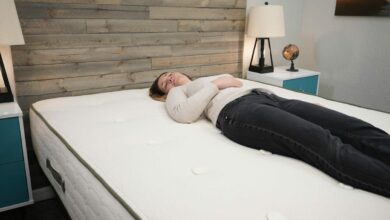Bought new holiday devices for Black Friday? Do not connect them to an extension cord

If you’re planning to decorate for the holidays this year, there’s more to consider than whether you bought enough string lights. You also have to think about where you are going to connect everything. You have one outlet, a whole bunch of items to plug in, and an extension cord. Logic may tell you to add everything to your extension cord and keep it moving, but experts say otherwise. In fact, that’s something you should try to avoid. Extension cords, especially when it comes to the holidays, are a big no.
“A lot of people don’t know about extension cords,” says Paul Martinez, owner of Electrified NYCin Brooklyn, New York. “If extension cords are 14-gauge and you are using an appliance with a heating element, [such as] a toaster oven, microwave or dishwasher, a 14 gauge cannot hold the amperage and can burn the extension cord. And that’s what’s causing fires in New York City.”
Fourteen- and 12-gauge extension cords are some of the most common extension cords sold with a 14-gauge extension cord that can handle approximately 1,800 watts (or 15 amps, which is the same as a standard US wall outlet). ). However, Martinez cautions that any appliance over 1,500 watts should always be on a dedicated circuit.
“No extension cords whatsoever,” he says for such devices.
Here are seven risky examples in your home that you should never plug into an extension cord.
Read more: Best surge protector of 2024
1. Air fryer
Air fryers are great for quickly cooking and reheating foods, including full meals and side dishes, but it’s not a good idea to attach them to an extension cord or power strip. Although they vary in wattage based on size, large air fryers can draw up to 2,000 watts, making them a major fire hazard if attached to an extension cord. So if you don’t have counter space to leave your air fryer outside all the time, it’s best to take it out when necessary and plug it into a dedicated outlet.
2. Microwave
While the dream is to move into a house with a built-in microwave, none of us are so lucky. If you need to find a place to plug yours in your kitchen, this is another rugged appliance that should run on its own dedicated circuit due to its high wattage.
Read more: Best microwave for 2024
3. Refrigerator
Although refrigerators use less wattage than some other kitchen appliances, they are still not recommended for using extension cords because they are constantly on. Even if the extension cord does not cause a fire when attached to a refrigerator, it may cause the refrigerator to malfunction.
4. Toaster and toaster oven
Although toasters are on the small side in terms of kitchen appliances, they use a lot of energy and pose a fire hazard if plugged into an extension cord. Toaster ovens require even more power to operate at a wattage of 1,200 to 1,400 watts.
5. Extension cords
Plugging extension cords into other extension cords is another big “no!” in the electrician world. When this is done it is known as “series connection.” This can cause the circuit to overheat, which can cause the wires to overheat.
6. Space heaters
It has long been known that electric heaters are a major cause of fire. The Consumer Product Safety Commission It was previously estimated that between 2017 and 2019, portable space heaters were involved in 1,700 fires per year, with some of these fires resulting in death.
‘Suppose you connect [an extension cord] With underfloor heating,” says Martinez, “the plug melts and a fire starts. Therefore, you should not use extension cords and/or power strips for any appliance, as they should only be used for electronics.”
Read more: Never place a space heater in these 9 places
7. AC unit
AC appliances use too much power for an extension cord or power strip, so they must also be plugged into an electrical outlet. Martinez also emphasizes the importance of purchasing the right AC unit for your space. You can use one online BTU calculator to calculate which type you need to effectively cool your space.
“People just buy a 5,000 BTU air conditioner because it’s $99 on sale, and they think it’s going to cool down [their home]and that is not the case,” Martinez said.[AC units] They have to cycle on and off, so they don’t draw as much energy. So if you make it too small, the compressor will work ten times harder.”
This can result in your home never cooling down properly, a higher electric bill, and if this AC unit is plugged into an extension cord, possibly a fire.
The bottom line when it comes to extension cords
“No appliances whatsoever,” Martinez says of extension cords and power strips.
He says you should also remember to only connect power strips to electronics, and that extension cords should not be used for anything over 15 amps (1,800 watts), regardless of where or how the item operates.
For more home tips, see how much you can do Save with a space heater and learn where you need to be never install a home security camera.




